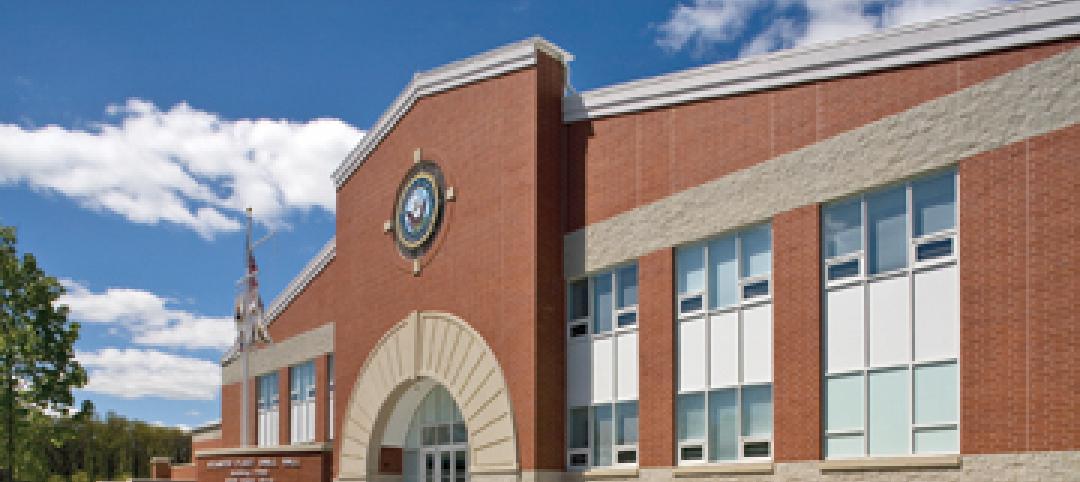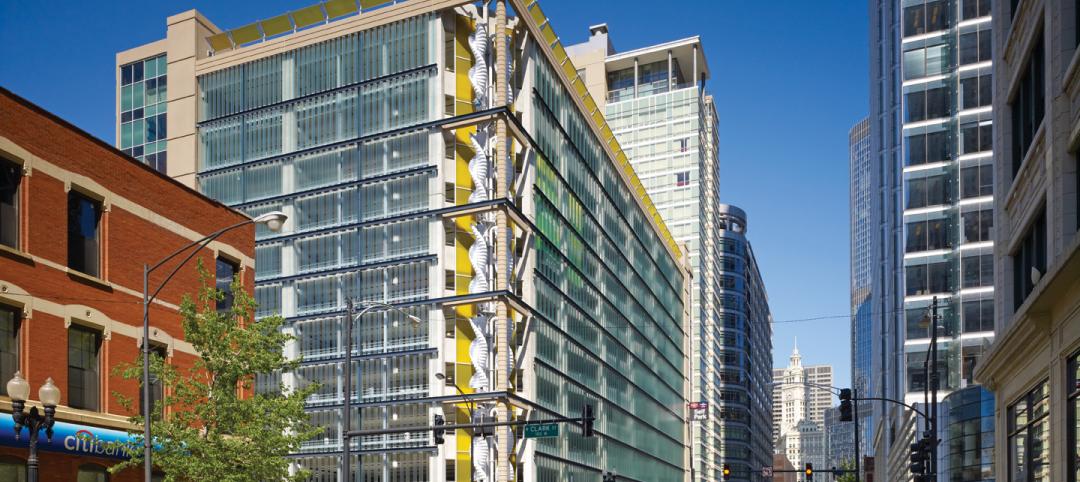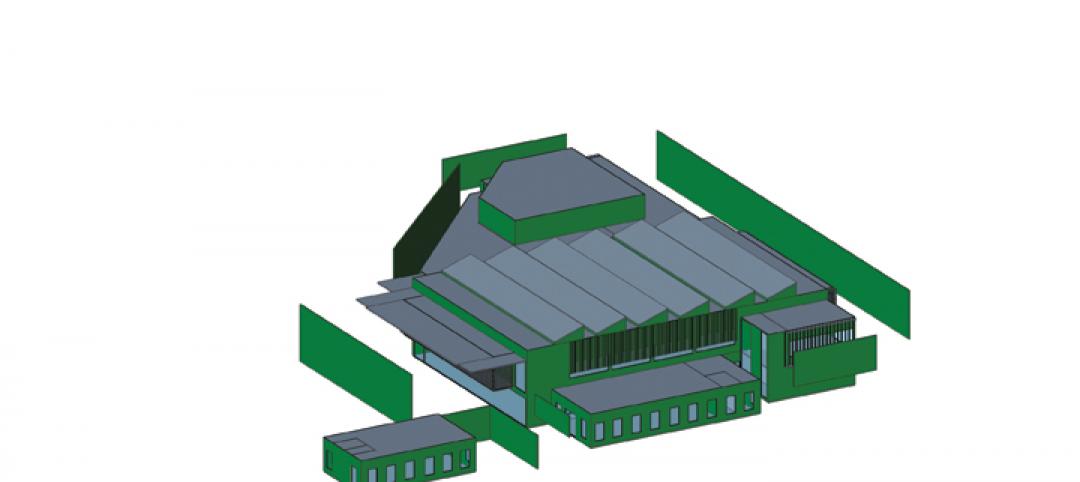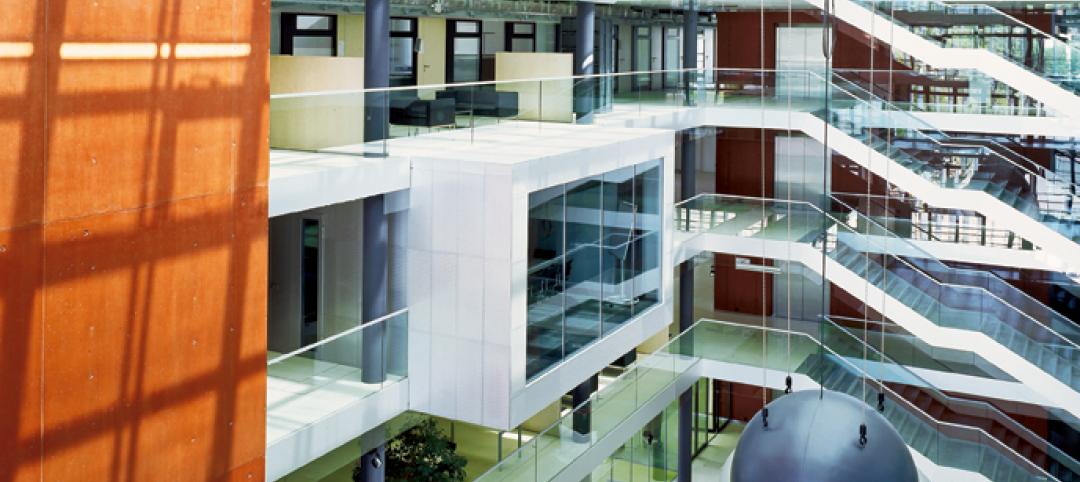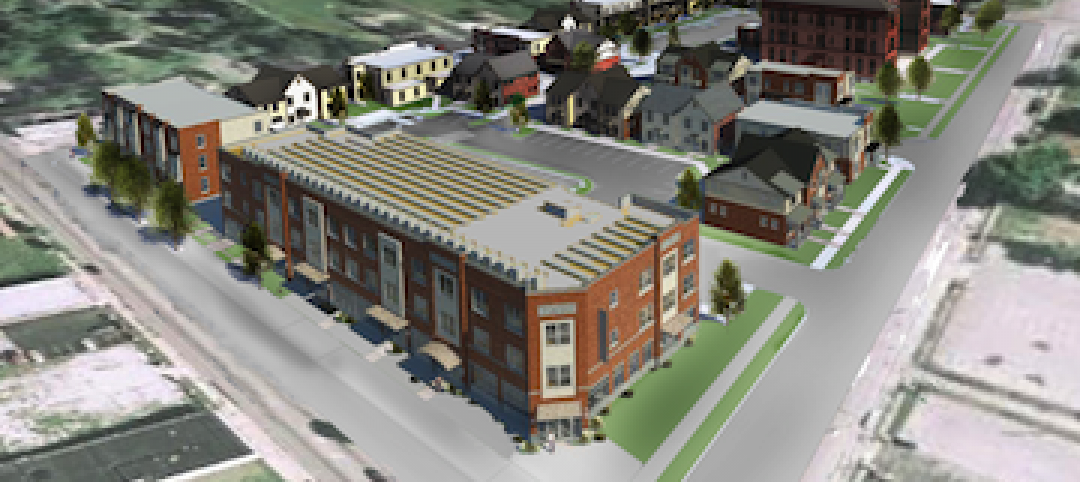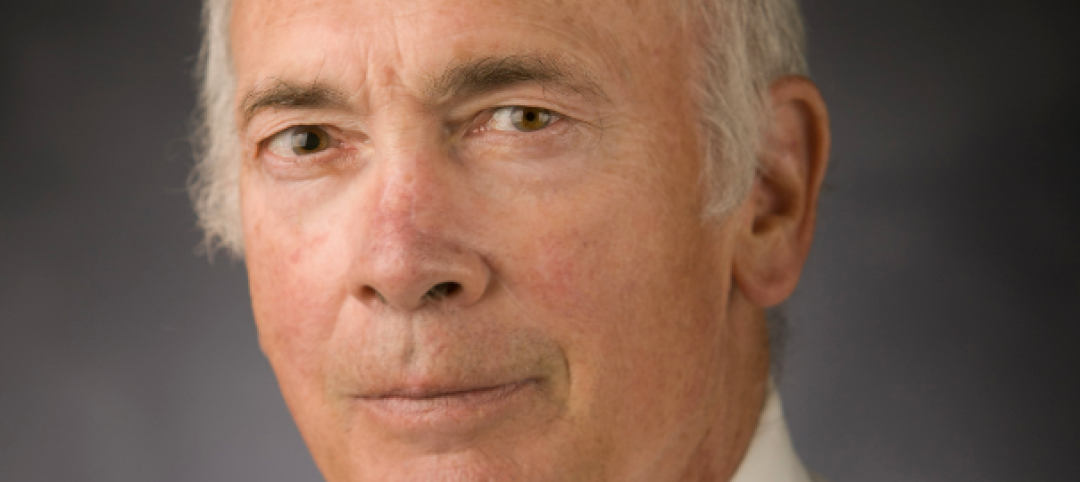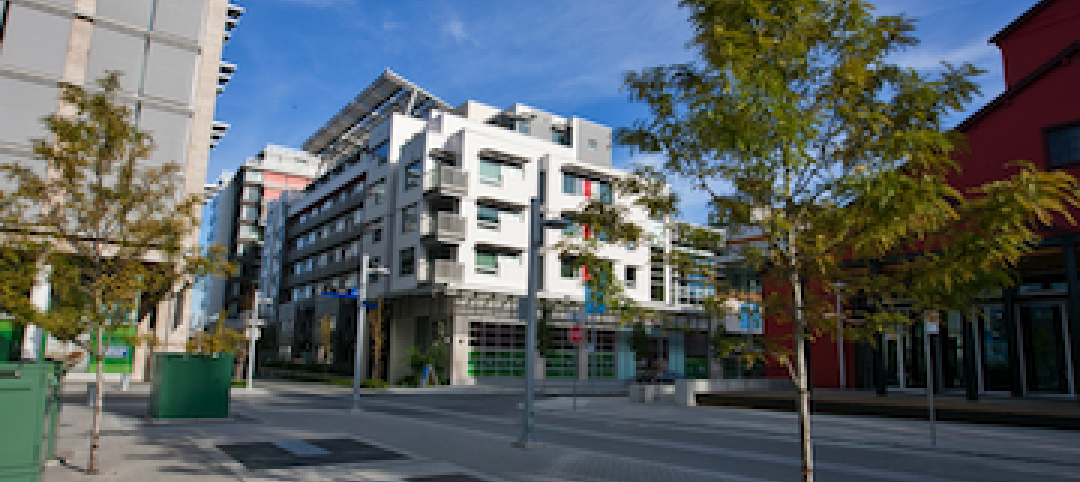GAINESVILLE, FLA. – Longtime contracting affiliates Charles Perry Construction, Inc. (CPC) and PPI Construction Management, Inc. (PPI) have joined forces as Charles Perry Partners, Inc. (CPPI) to become the 4th largest Florida-based general contracting and construction management firm with revenues of $202 million, based on ENR Southeast magazine’s latest survey published May 2010.
The Gainesville-based company also operates Jacksonville, Orlando and Tampa offices, as well as a new office outside of Athens, Georgia. Currently with over 150 employees, the company has more than 50 LEED Accredited Professionals as designated by the United States Green Building Council (USGBC) and has delivered over 35 LEED-Certified projects.
Founded by Charles R. “Chuck” Perry, and operated separately since 1968 and 1993, respectively, under the ownership of Principals Breck A. Weingart, John V. Carlson, Domenic E. Scorpio and Brian Leslie, the award-winning companies have long shared estimating/cost management staff, with CPC offering general contracting and design-build services and PPI offering construction management services. The companies specialize in commercial, educational, healthcare, governmental and institutional construction, with a client list that includes HCA, the University of Central Florida, University of Florida, University of North Florida, University of South Florida, as well as other colleges, K-12 school districts, and state and local governments.
The company’s many outstanding projects include: the new $96 million University High School in Volusia County; The Village Retirement Community Expansion; the $50 million Ben Hill Griffin Stadium and SkyBox Expansion; the $42 million University of Central Florida Physical Sciences Building, Phases I and II; the $38 million University of Florida Veterinary Education and Clinical Research Center (Small Animal Hospital); the $25 million University of South Florida Dr. Kiran C. Patel Center for Global Solutions; the $11 million Florida Innovation Hub now under way at the University of Florida; and countless others. Also worthy of special note is the $21 million University of Florida Heavener Football Complex, the first LEED Platinum building in the State of Florida and the first LEED Platinum athletic facility in the United States.
In making the announcement, CPPI CEO and Principal John V. Carlson stated, “Uniting our operations serves to better reflect our statewide industry standing and also unifies the unmatched brand of quality and service we deliver to our clients. Advocating for the best interests of our clients is the basis for our success, and proudly, over 80 percent of our clients are repeat customers.” Carlson added that all projects currently under contract will be seamlessly completed by the original contracted entity, whether CPC or PPI, and that all newly-awarded projects will be constructed by CPPI.
“Evidencing our commitment to continuous improvement in serving clients second to none,” added CPPI Chairman and Principal Breck A. Weingart, “this move formalizes recent combined efforts by our family of companies that have proven successful across the board. Having test-marketed our combined operations both administratively and in the field,” Weingart continued, “we have further improved our utilization of resources and project team personnel, resulting in complete client satisfaction. As a dynamic company that continues to excel, our new name, CPPI, allows us to market as a single brand to our specialty market segments regardless of project type, location or delivery method. Moving forward, this streamlining allows our team to be even more client-focused and performance-driven, which have become the hallmarks of our success since 1968.”
“For more than four decades, the success we have achieved statewide and locally is due in large part to our dedicated employees and our many valued clients, design team members, subcontractors, suppliers and vendors, for whose support we are forever grateful”, concluded Weingart.
Weingart, a 2008 inductee into the Construction Hall of Fame at the University of Florida’s M.E. Rinker School of Building Construction, began his career at Charles Perry Construction in 1983 after earning his Bachelor of Building Construction degree at the University of Florida. Prominently named Builder of the Year in 2001 and 2004 by the Builders Association of North Central Florida, he has long served as majority owner, President and Principal of Charles Perry Construction as well as a Principal of PPI Construction Management. He currently serves on the Board of Directors of M&S Bank and the Executive Advisory Committee of UF’s M.E. Rinker School of Building Construction, and has served on the Board of Directors of Alachua County Boys & Girls Club.
Carlson, President of PPI Construction Management, Inc. since 1997, was formerly Director of Facilities Planning at the University of Florida, and earlier in his career served as Community Planner for the City of Gainesville having earned a Bachelor’s degree in Urban Design/Planning from Iowa State University. His many business, civic and community leadership interests include the Wells Fargo Bank Board of Advisors, the Gainesville Chamber of Commerce Board of Directors, as well as former chairmanships of the Alachua County Planning Commission, the Gainesville Housing Authority, and numerous others.
Scorpio, CPPI President and Principal, has been Vice President and Principal of PPI Construction Management since 2001, having earlier joined Charles Perry Construction in 1995. Recipient of the 2006 University of Florida Outstanding Young Alumnus Award, he holds a Master of Building Construction degree from UF’s M.E. Rinker School of Building Construction as well as a Bachelor of Architecture degree from the University of Florida. A LEED BD+C Accredited Professional as designated by the United States Green Building Council, he currently serves on UF’s M.E. Rinker School of Building Construction Executive Committee as well as the Board of Directors of Gateway Bank, the Builders Association of North Central Florida, Alachua County Boys & Girls Club, and others.
Leslie, CPPI Executive Vice President and Principal, has served as Vice President and Principal of Charles Perry Construction, having joined the company in 1993. He holds a Bachelor of Building Construction degree from the University of Florida’s M.E. Rinker School of Building Construction, and serves on the Board of Directors of the Builders Association of North Central Florida where he also served as President in 2008.
CPPI’s headquarters is located at 8200 NW 15th Place, Gainesville, Florida. The company's Jacksonville office is located at 101 E. Town Place, Suite 200, St. Augustine, Fla. Its Orlando office is located at 200 E. Palm Valley Drive, Suite 1040, Oviedo, Fla., and its Tampa office is located at 14422 Bruce B. Downs Boulevard, Tampa, Fla. In addition, the company’s Georgia office is located at 1011 Woodbridge Lane, Suite 102, Watkinsville, Ga.
Related Stories
| Nov 2, 2010
A Look Back at the Navy’s First LEED Gold
Building Design+Construction takes a retrospective tour of a pace-setting LEED project.
| Nov 2, 2010
Wind Power, Windy City-style
Building-integrated wind turbines lend a futuristic look to a parking structure in Chicago’s trendy River North neighborhood. Only time will tell how much power the wind devices will generate.
| Nov 2, 2010
Energy Analysis No Longer a Luxury
Back in the halcyon days of 2006, energy analysis of building design and performance was a luxury. Sure, many forward-thinking AEC firms ran their designs through services such as Autodesk’s Green Building Studio and IES’s Virtual Environment, and some facility managers used Honeywell’s Energy Manager and other monitoring software. Today, however, knowing exactly how much energy your building will produce and use is survival of the fittest as energy costs and green design requirements demand precision.
| Nov 2, 2010
Yudelson: ‘If It Doesn’t Perform, It Can’t Be Green’
Jerry Yudelson, prolific author and veteran green building expert, challenges Building Teams to think big when it comes to controlling energy use and reducing carbon emissions in buildings.
| Nov 2, 2010
Historic changes to commercial building energy codes drive energy efficiency, emissions reductions
Revisions to the commercial section of the 2012 International Energy Conservation Code (IECC) represent the largest single-step efficiency increase in the history of the national, model energy. The changes mean that new and renovated buildings constructed in jurisdictions that follow the 2012 IECC will use 30% less energy than those built to current standards.
| Nov 1, 2010
Sustainable, mixed-income housing to revitalize community
The $41 million Arlington Grove mixed-use development in St. Louis is viewed as a major step in revitalizing the community. Developed by McCormack Baron Salazar with KAI Design & Build (architect, MEP, GC), the project will add 112 new and renovated mixed-income rental units (market rate, low-income, and public housing) totaling 162,000 sf, plus 5,000 sf of commercial/retail space.
| Nov 1, 2010
John Pearce: First thing I tell designers: Do your homework!
John Pearce, FAIA, University Architect at Duke University, Durham, N.C., tells BD+C’s Robert Cassidy about the school’s construction plans and sustainability efforts, how to land work at Duke, and why he’s proceeding with caution when it comes to BIM.
| Nov 1, 2010
Vancouver’s former Olympic Village shoots for Gold
The first tenants of the Millennium Water development in Vancouver, B.C., were Olympic athletes competing in the 2010 Winter Games. Now the former Olympic Village, located on a 17-acre brownfield site, is being transformed into a residential neighborhood targeting LEED ND Gold. The buildings are expected to consume 30-70% less energy than comparable structures.
| Oct 27, 2010
Grid-neutral education complex to serve students, community
MVE Institutional designed the Downtown Educational Complex in Oakland, Calif., to serve as an educational facility, community center, and grid-neutral green building. The 123,000-sf complex, now under construction on a 5.5-acre site in the city’s Lake Merritt neighborhood, will be built in two phases, the first expected to be completed in spring 2012 and the second in fall 2014.


